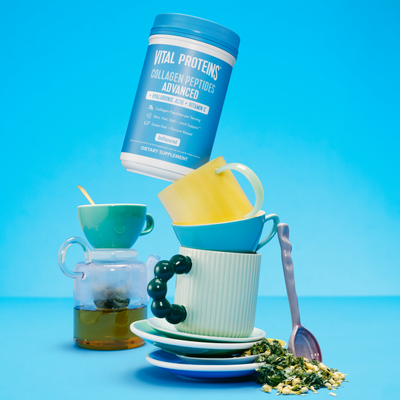By: Maggie Young
If you notice that you feel a little down during the cold, winter months, you are most definitely not alone. Winter blues are a real thing and it’s important to be cognizant of how it affects you. With fewer chances to get outside, be active and soak in the sun, it’s no wonder these feelings catch up with us. Luckily, Lively has the lowdown on how to be smart about your mental health during the winter months — chilly temps, blizzards and all! Keep reading for everything you need to know.
What are the winter blues?
The lack of sunshine and outdoors time are some of the biggest precursors to negative moods throughout the colder months. “There are a lot of us who don't like winter, but for some people, that dislike can go all the way to something that resembles depression—lack of interest in regular activities, sleeping too much (or too little), ignoring self-care, and avoiding social interaction,” shares Becky Eason, PhD ACC.
Luckily, there are a couple of things you can do to help conquer this. Read on for more.

5 Ways to Boost Your Mood
1. Move Your Body Every Day
Exercise is a natural mood booster, so this is an important one to do consistently. (And trust us when we say you don’t need a fancy gym membership for it.) There are tons of free YouTube video series such as Yoga with Adriene, POPSUGAR Fitness and FitnessBlender to name a few. Other options include pumping up the jams and dancing in your room, bundling up and walking outside or busting out some bodyweight moves in the comfort of your own home. Bonus: The movement helps regulate your sleep-wake cycle, too!
2. Stock Up on Healthy Eats & Vitamin D
Eason enjoys making more nutritious swaps on hearty staples (like using pureed cauliflower or Greek yogurt as a thickening agent in a creamed soups) to eat clean. In addition, he encourages adding Vitamin D3 to your regimen as your body can lack it due to decreased time in the sunshine. "Low Vitamin D can cause a host of physical and mental symptoms since Vitamin D plays a role in serotonin production, a key neurotransmitter involved in mood,” shares Jeff Siegel, M.Ed, CPT. “Although you can get Vitamin D from certain foods like egg yolks and fatty fish, supplementing with a few 1000 IUs of D3 can be helpful.”
3. Get Outside & Breathe in Some Fresh Air
“Light exposure, or lack thereof, seems to be the main driver of physical and emotional changes during the winter months,” says Siegel. “The lack of sunshine combined with cold temperatures means that it’s unlikely you’ll spend time outside with your skin exposed to the sun.” Receiving sunlight, especially in the morning hours, helps regulate your sleep-wake cycle as well as hormones, neurotransmitters connected to mood, appetite, digestion and temperature. If you can’t get that light exposure outside, Siegel recommends sitting in front of a 10,000 lux of cool-white fluorescent light as a substitute.
4. Connect with Others
Siegel recommends not only meeting up with loved ones, but working with others that may need more help than you. You can find local volunteer opportunities at VolunteerMatch.
5. Practice Self-Compassion
Hone into what you need. If you need more rest, let yourself sleep in or catch a nap. If you need some decompression time, find an activity such as yoga or meditation to release any stress. Overall, don’t give yourself a hard time for feeling the way you do. Instead, find ways to nurture yourself through it.

Why is it important to address the winter blues?
It’s essential to know and remember that you are not alone if the winter months have you feeling down. By learning more about the winter blues, you can take a proactive approach and seek additional help if required. “Everyone has a different relationship to the dark, and depending on where you live and family history, the lack of light might trigger depressive symptoms,” shares Siegel. “The important part is knowing how you tolerate changes in temperature and sunlight so you can prepare to make winter work for you rather than against you.”
Note: As always, we recommend discussing your health with your licensed healthcare professional. They can best provide you with the diagnosis and treatment of any medical condition and assist you as well.
















